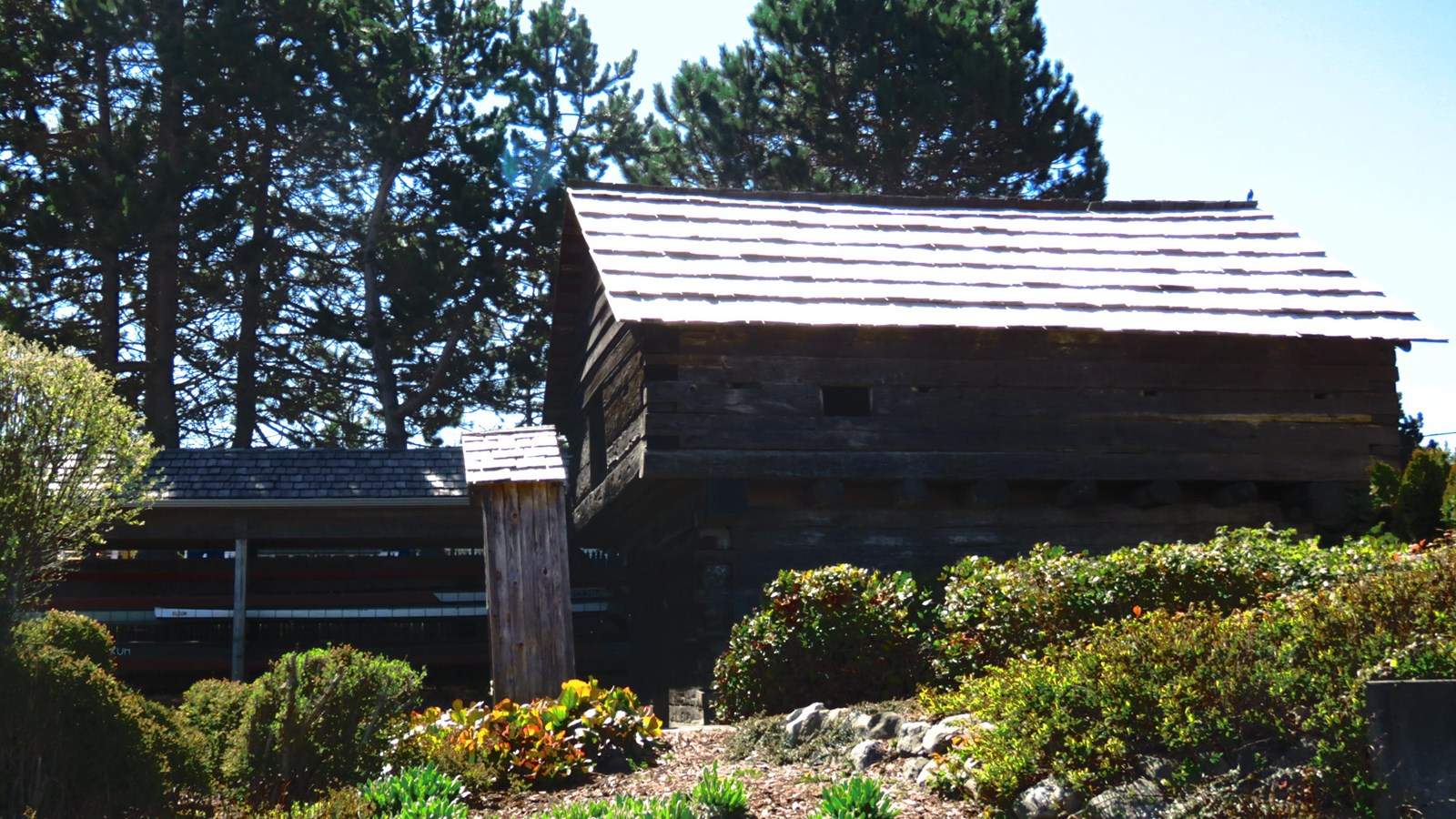Last updated: December 21, 2021
Place
Ebey's Reserve - the Alexander Blockhouse

photo courtesy of the Trust Board of Ebey's Landing NHR
Quick Facts
Location:
Downtown Coupeville
Significance:
Island County & Ebey's Reserve History
Designation:
Museum
MANAGED BY:
Amenities
14 listed
Benches/Seating, Bicycle - Rack, Boat Ramp, Gifts/Souvenirs/Books, Historical/Interpretive Information/Exhibits, Information, Information - Maps Available, Information - Park Newspaper Available, Information Kiosk/Bulletin Board, Parking - Auto, Picnic Table, Restroom - Accessible, Scenic View/Photo Spot, Wheelchair Accessible
Originally home to eleven blockhouses scattered throughout the Ebey’s Reserve, only four remain: the Crockett Blockhouse on Ft. Casey Road; the Ebey Blockhouse next to the Jacob & Sarah Ebey House; the Davis Blockhouse located in Sunnyside Cemetery; and, the Alexander Blockhouse in downtown Coupeville alongside the Island County Museum.
These territorial structures were built during the mid-1850’s, and were used primarily as a small fortification for white settlers. With the decline of any perceived threat from Native Americans, the use of these structures shifted to storage and outbuildings used for farming. Winfield Scott Ebey (brother of Isaac Ebey) used the Ebey Blockhouse as a law office.
The Alexander Blockhouse, which is open to the public, sits on what was originally the Donation Land Claim of John Alexander along the shores of Penn Cove. Originally, this land was the site of a Lower Skagit Village called “ bac̓ádzale ” in the Lushootseed language.
These territorial structures were built during the mid-1850’s, and were used primarily as a small fortification for white settlers. With the decline of any perceived threat from Native Americans, the use of these structures shifted to storage and outbuildings used for farming. Winfield Scott Ebey (brother of Isaac Ebey) used the Ebey Blockhouse as a law office.
The Alexander Blockhouse, which is open to the public, sits on what was originally the Donation Land Claim of John Alexander along the shores of Penn Cove. Originally, this land was the site of a Lower Skagit Village called “ bac̓ádzale ” in the Lushootseed language.
